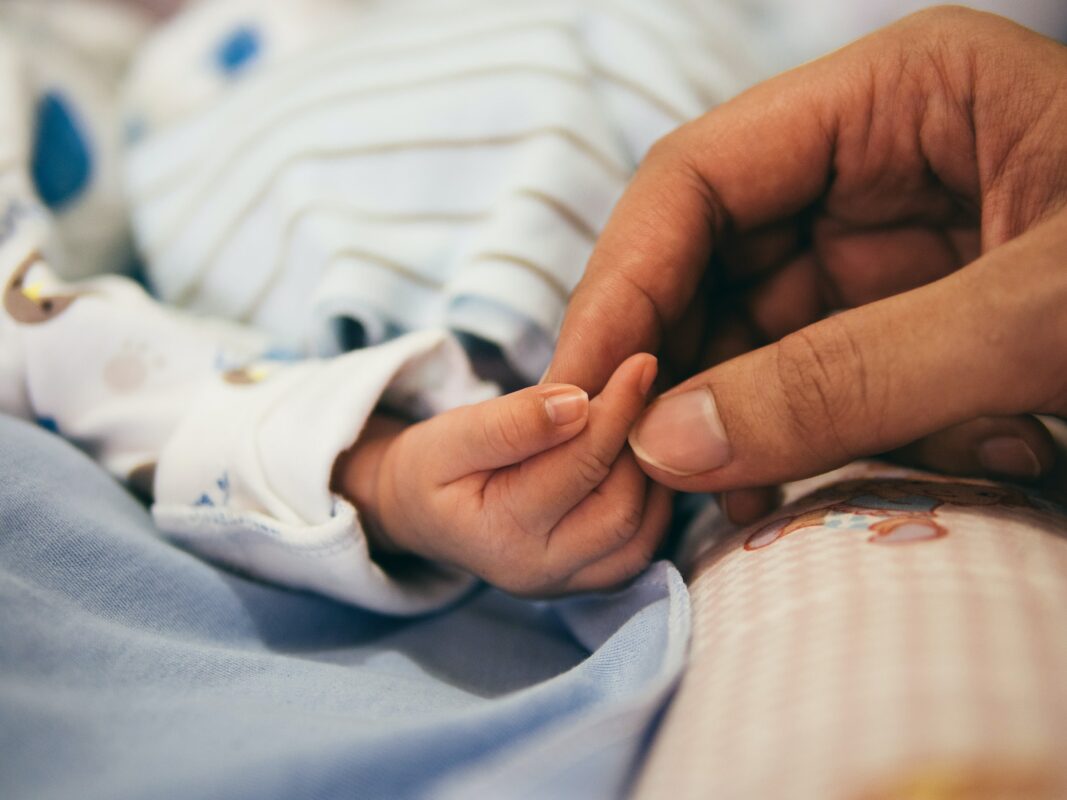Pregnant women have traditionally been excluded from drug and vaccine research for a number of reasons, including concerns about harm to the fetus and the added red tape involved in designing the trial and getting approval. Unfortunately, this has also locked pregnant women out of receiving the benefits of drug research, stranding them in a nine-month limbo where even minor medical conditions may remain untreated because of a lack of clinical data.
Nothing could have cast this dilemma into greater relief than the arrival of vaccines for SARS-Cov-2, the virus that causes COVID-19. Pregnant women are at greater risk themselves for severe illness and death from COVID-19, and the virus puts them at an increased risk of poor pregnancy outcomes. However, the Pfizer/BioNTech and Moderna COVID-19 vaccines were not tested on pregnant women, and very limited data is available regarding the safety or benefits of those vaccines during a pregnancy. Pregnant people are advised to make their own decisions after consulting with their physician.
The fact that pregnant women often have little medical advice to rely on while making health choices is a situation that needn’t be the case, according to Karen Puopolo, a neonatologist with Children’s Hospital of Philadelphia. While many researchers have a reasonable reluctance to experiment on pregnant women, this hesitancy also deprives expectant mothers of the benefits of the research.
“Do we protect pregnant women from research, or do we protect women with research?” she said in an interview with Flux. “I think that SARS-Cov-2 is just one example of a place where we are struggling to find the right balance.”
Puopolo understands this dilemma from a very personal angle. During her fourth pregnancy, she had breast cancer, and was in the position of having to make decisions about treatment without much data for guidance. That experience is something she reflects upon often in her work as the chief of newborn medicine at her Philadelphia hospital, she said.
“For many women, [pregnancy] does come with medical complications,” she said. “Most of the time, people do want to be happy about having a new baby and this pandemic has added this layer of stress that has cast such a pall on it. And my heart really does go out to them.”
And it’s not just in the area of infectious disease or cancer where data guiding medical decisions for pregnant women is lacking. Nearly 4 percent of pregnant women experience chronic hypertension in pregnancy. Another 4 percent are diabetic. And an estimated 15 to 29 percent of pregnant people experience a psychiatric disorder. Those are just a few of the many illnesses that can occur during pregnancy. As well, there are many conditions specific to pregnancy that are still poorly studied, like extreme nausea and vomiting, sciatic nerve compression, and preeclampsia. In spite of that, some drug treatments for those symptoms have been studied during pregnancy and are known to be safe.
Fears about experimenting on pregnant women stem from a couple of notorious research disasters. One was thalidomide, a drug prescribed to thousands of pregnant women around the world (but not in the United States) for morning sickness. The drug caused severe limb malformations in children whose mothers took the drug.
The other well-known case of harm caused by a drug prescribed to pregnant women was diethylstilbestrol (DES), which was used as a method to prevent miscarriages between the 1930s and 1971. Not only was it found not to prevent miscarriage, it caused a rare vaginal cancer in girls whose mothers took the drug while pregnant.
These mistakes raised awareness that interaction of drugs with pregnancy and fetal development is not that well known or predictable, and that significant harms are possible.
However, an excess of caution has left pregnant people stuck in the 20th century healthcare-wise, while the rest of the world has moved on to the 21st. In 2018, an NIH task force issued recommendations for research in pregnant and lactating women.
The first recommendation on the list was to remove pregnant women as a vulnerable group.
In a 2017 commentary in the British Medical Journal, Carleigh B. Krubiner and Ruth R. Faden explained that the designation of vulnerability otherwise applies to people who are unable to make their own decisions, such as children or adults with impaired cognitive abilities.
“There is nothing about the state of pregnancy that renders pregnant women incapable of offering valid research consents or refusals,” they wrote. “Moreover, rather than protecting the health interests of pregnant women and their offspring, this designation has the opposite effect. It has contributed to widespread exclusion of pregnant women from research activities, which is itself pernicious to the health of pregnant women.”
Other recommendations of the task force included removal of regulatory barriers to research in pregnant women, expansion of the number of investigators with expertise in pregnancy and lactation, and programs to increase public awareness of the benefits of research in pregnant women, among many others.
There is some change in the air for research in pregnant women. Pfizer has launched a large Phase 2/3 study of its COVID-19 vaccine in 4000 pregnant women to assess safety and efficacy in both the mothers and their babies.
